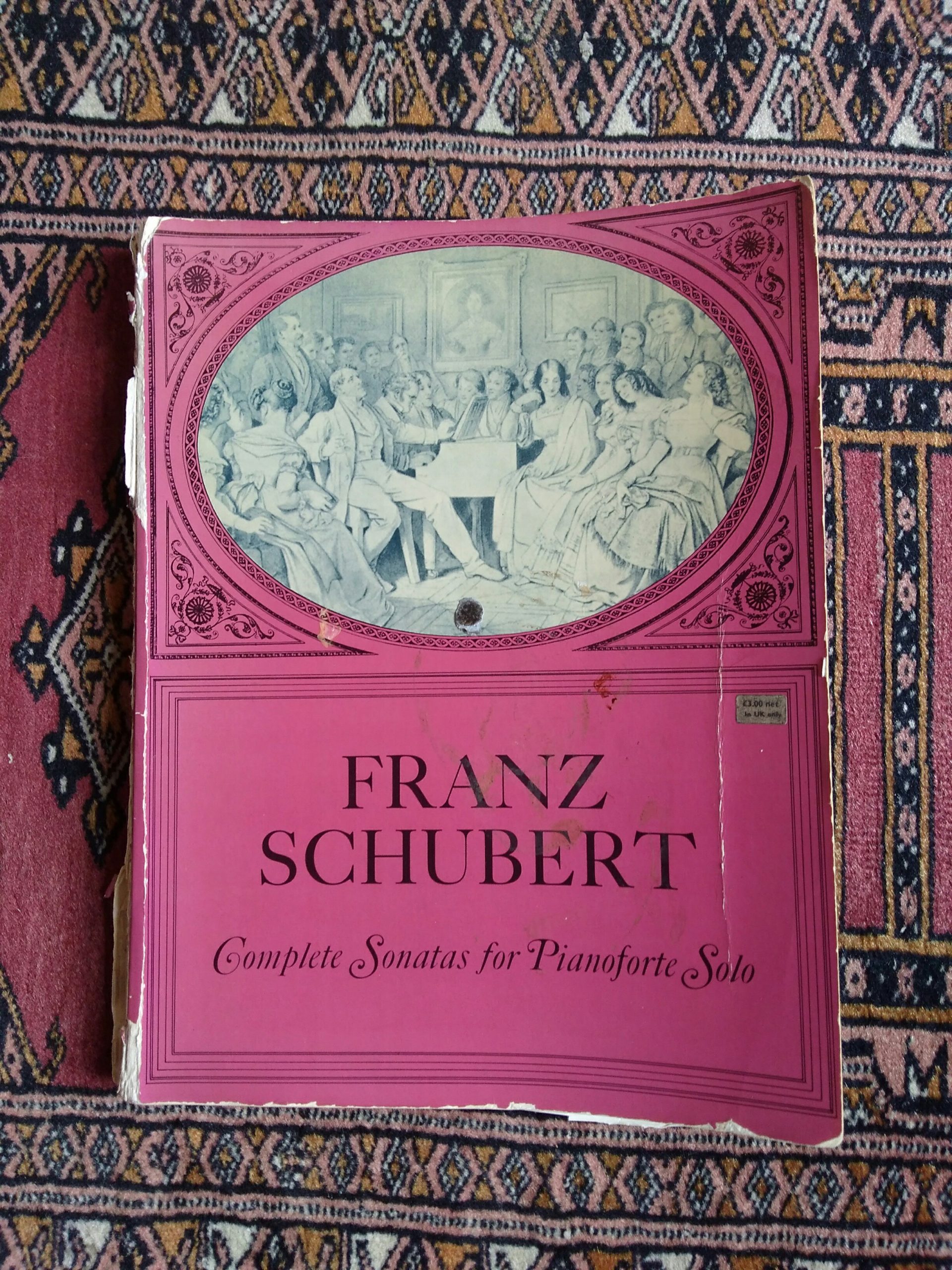 This is the second in my series about exploring some of the piano music I have neglected on my shelves.
This is the second in my series about exploring some of the piano music I have neglected on my shelves.
Today’s discovery is Schubert – in particular, the realisation that he wasn’t always the effortless master he became! I sat down to play through his early piano sonatas, which are not often part of recital repertoire. (Yes, yes, I know there are newer editions, but I’ve had the one in the photo since I was a student and am attached to it.)
Schubert’s first couple of sonatas were written when he was only 18, and the next few when he was just twenty. I was surprised to find that his early sonatas gave only hints of the qualities we so admire in his mature music. Of course there are wonderful melodic glimpses, but also long stretches of rather dull writing, which has the additional drawback of being awkward to play. Schubert was never a great pianist himself, but as time went on his imagination more than made up for any ungainly patches in the piano writing.
In his first few sonatas, however, it’s as if he hasn’t quite got his imagination into gear. He was well known for his many little ‘German dances’ (loved by Robert Schumann). The early sonatas seem a bit like those German dances extended past their natural span. What seems charming and sufficient in a miniature of 16 bars can seem thin if stretched out to eight pages.
As I played through the early sonatas, I came to one where he seems to change up a gear. This was no 6, the A minor sonata D537. He was still only twenty, but this sonata shows a new grasp of shape and how to hold the listener’s attention. And from then on (with the exception of single movements here and there) it’s easy to hear the authentic voice of Schubert as we have come to know it.
Even a sublime genius like Schubert had to learn his craft! I found it touching to play some of the music he wrote when he was still searching for a distinctive voice. It was very pleasing, in fact, to hear that voice starting to emerge and then getting stronger and stronger.




I loved trying the Schubert sonatas when a teenager. Hard to do when you can’t stretch an octave but I just loved his harmonic flow. Later, playing in an orchestra, I loved the symphonies for these harmonic journeys too. But what has always haunted me is the opening of a sonata in A minor, which is permanently lodged in my head. Haven’t had the volume for almost fifty years – starts with bare octaves. Any ideas what it might be?
There are two contenders, Mary – two A minor sonatas which start with a theme in octaves. I imagine the one you’re thinking of is the Sonata in A minor D874. I once heard a splendid performance of it at the Edinburgh Festival by Radu Lupu. He sat on an ordinary wooden chair with a back. He leaned against the back as he played until it got to the final crescendo of the first movement when he leaned forward and detached himself from the chair-back for the first time. Dramatic!
What a super interesting post! Many thanks, Susan.
Thank you, Ivan. Glad you found it interesting.
Yes! It is D784. It was published posthumously as op. 143, which is why I erroneously thought it was early. It got me through some tricky teenage moments! Thank you for giving it back, and with such a lovely Radu Lupu story, too.
Ooooh, controversial to say that any single movement of Schubert after D537 is anything less than perfect! You’d be grilled to a crisp to explain that comment if you happened to come into our house! Hehe just kidding. A fantastic post as usual, thank you.